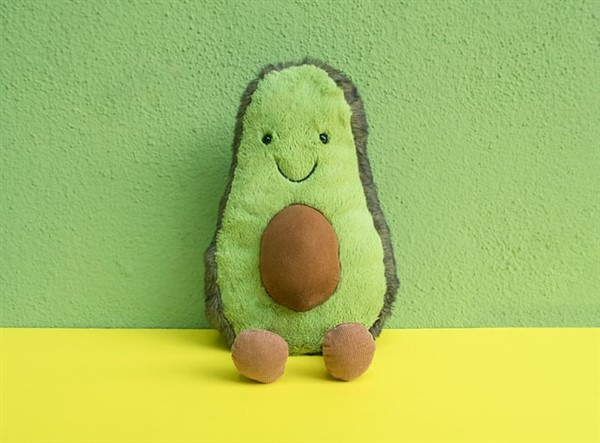When you feel down, what do you feel like doing? Binge-watch on Netflix, have a couple of glasses of wine, chowing down on your favorite comfort foods, or all three? Any of these strategies can make you feel better and temporarily boost your moods, and they often do. They all give temporary relief and hits of pleasure, but what about long-term happiness?
Let’s dig a little deeper when we talk about food and how it affects our mood. We already know that eating junk affects us physically: our energy levels can suddenly drop, blood sugars spike, the weight creeps on, or we eat well, the energy levels are constant, our blood sugars don’t spike, and we are at our fighting weight.
But new research shows that our day-to-day meals may have as much an impact on our mental health as our physical health. Studies show that eating a certain way can reduce our risks of getting the blues, feeling anxious and stressed, or from getting bouts of depression in the first place?
The research showed in clinical trials that food can help elevate moods after they’ve started? Yes, after!
What Are These Mood-Boosting Foods. The Mediterranean diet
Let’s take a short trip through the new field of “nutritional psychiatry.” The term “nutritional psychiatry” is relatively new. Still, the evidence is that some foods and nutrients you eat can improve how you feel emotionally—both short and long-term.
There is one dietary pattern that is consistently linked to lower rates of depression. It’s also linked to lower rates of heart disease, diabetes, obesity, cancers, and weight issues. That diet? The Mediterranean diet.
The Mediterranean diet evolved from what people traditionally ate in that area of Europe. It’s rich in vegetables, olives, olive oil, whole grains, fruits, nuts, and lean proteins such as chicken and wild-caught fish. It’s also fairly low in red meat and dairy.
Eating a Mediterranean-style diet may do more than protect your mental health. It may even help improve mood, anxiety, stress, and the symptoms of depression even after they’ve started. A study conducted by the Deakin University in Australia recently tested this theory in a clinical trial.
The trial became known as The SMILES Trial. They recruited participants with depression and randomly split them into two groups. One group (the “Diet” group) received a dietary intervention that included meetings with a dietitian for education, support, and nutritional counseling. This group ate a modified Mediterranean-style diet for 12 weeks.
The other group, the “Befriending” Group, had the same number of meetings as the “Diet group.” However, instead of food and nutrition advice, the Befriending Group received just social support.” Befriending is a tool used in psychology studies.
After 12 weeks, the researchers compared each person’s symptoms to how they felt at the trial’s beginning. They also compared the two groups to each other.
It turns out that the people who participated in the Diet group with the Mediterranean diet had a notable reduction in their depression symptoms compared to those in the Befriending Group. Participants who improved their diets the most experienced a significant mental health benefit.
What does this all mean?
Eating a Mediterranean-style diet reduces your risk for depression before you ever experience it. Plus, if you experience symptoms of depression, changing your diet can help improve symptoms of depression after 12 weeks of a more Mediterranean-style diet.
How can food affect your mood?
On a basic level, calories provide fuel to give us the energy to move, think, digest, breathe, etc. However, what we eat should also provide us with essential vitamins and minerals. When we eat fast foods and highly processed foods, they are already stripped of these essential vitamins and minerals when they’re processed.
These essential vitamins and minerals are involved in complex reactions in our bodies; it is where the magic happens. They are needed to make the necessary compounds such as neurotransmitters and hormones. They facilitate or enable the production and storage of our energy needs. They are the supporting cast for the immune system, and they maintain and regulate the nervous system. They revitalize our muscles, our organs, and our bone structure. They assist in digestion, fluid balance, and blood flow. They rejuvenate the cells, heal the wounds, and protect the brain.
Hormones and Neurotransmitters
Hormones and Neurotransmitters have critical roles when it comes to moods. For example, the absence of serotonin, “the happiness hormone,” is linked to a poor frame of mind, anxiety, depression have all been well-studied. Several medications prescribed for depression try to improve levels of serotonin.
Recent studies show that a whopping 90 percent of serotonin receptors are located in the digestive system and not in the brain. Suffice to say, healthy brain function is a consequence of eating healthy foods.
Antidepressant Nutrients
When it comes to the nutrients themselves, twelve of them have “antidepressant” roles in the body. They include folate, iron, omega-3 fatty acids (EPA and DHA), magnesium, potassium, selenium, thiamine, vitamin A, vitamin B6, vitamin B12, vitamin C, and zinc. Eating more foods that are rich in these nutrients can help your mental health.
Inflammation
Inflammation is yet another connection between what we eat and our mental health. People with depression, anxiety, brain fog, and mood swings tend to have higher levels of inflammation. Those who eat a more anti-inflammatory plant-based diet and avoid sugary and processed foods have reduced inflammation and reduced risks for depression.
These examples illustrate the many complex interconnections between what we eat and how it can influence how we feel mentally and emotionally.
Here are some strategies on how to put these nutritional psychiatry guidelines to work for you.
Enjoy more vegetables and fruits.
More vegetables and fruits are essential to better physical and mental health, whether fresh or frozen.
Add a range of colorful plants to your diet (spinach and other greens, peppers, cauliflower, pumpkin, peppers, lemon).
Choose unsweetened fruits and vegetables over juices.
Eat enough fiber.
In addition to fruits and vegetables, whole grains and legumes are high in fiber.
Get some fermented and probiotic-rich foods.
Examples of fermented foods include plain yogurt, kefir, sauerkraut, pickles, miso, kimchi, etc.
When shopping, look for ones in the refrigerator section (not on the shelves at room temperature), as refrigerated ones are more likely to contain live active cultures still.
Cut down on sugar.
To reduce sugar intake, try using less and substituting with berries or cinnamon.
Reach for better proteins.
Choose wild-caught seafood (salmon, mackerel, herring, sardines) and lean poultry over red meat.
Avoid pro-inflammatory foods as often as you can.
Highly processed foods high in trans fat, saturated fat, refined flours, and sugar lead to higher levels of inflammation
Final Thoughts
The connections between what you eat and how you feel keep getting stronger. Eating well can reduce your risk of developing depression and even help alleviate some symptoms of anxiety, stress, and mood swings.
Benefits go beyond better moods and reduce your risks for heart disease, obesity, diabetes, cancers, and being overweight.
References
Food and Mood Centre. (n.d.). The SMILEs trial. Retrieved from https://foodandmoodcentre.com.au/smiles-trial/
Harvard Health. (2018, February 22). Diet and depression. Retrieved from https://www.health.harvard.edu/blog/diet-and-d HYPERLINK “https://www.health.harvard.edu/blog/diet-and-depression-2018022213309″expression-2018022213309
Harvard Health. (2018, June). Food and mood: Is there a connection? Retrieved from https://www.health.harvard.edu/mind-and-mood/foo HYPERLINK “https://www.health.harvard.edu/mind-and-mood/food-and-mood-is-there-a-connection”d-and-mood-is-there-a-connection
Harvard Health. (2019, March 27). Gut feelings: How food affects your mood. Retrieved from https://www.health.harvard.edu/blog/gut-feelings-how-food-affects-your-mood-2018120715548
Harvard Health. (2020, April 7). Eating during COVID-19: Improve your mood and lower stress. Retrieved from https://www.health.harvard.edu/blog/eating-during-covid-19-improve-your-mood-and-lower-stress-2020040719409
LaChance, L. R., & Ramsey, D. (2018). Antidepressant foods: An evidence-based nutrient profiling system for depression. World journal of psychiatry, 8(3), 97–104. https://doi.org/10.5498/wjp.v8.i3.97
Mayo Clinic. (2018, November 17). Antidepressants and weight gain: What causes it? Retrieved from https://www.mayoclinic.org/diseases-conditions/depression/expert-answers/antidepressants-and-weight-gain/faq-20058127
Medscape. (2018, September 28). More Evidence Links Mediterranean Diet to Less Depression. Retrieved from https://www.medscape.com/viewarticle/902685
Medscape. (2019, May 21). Mediterranean Diet May Keep Late-Life Depression at Bay. Retrieved from https://www.medscape.com/viewarticle/913284

